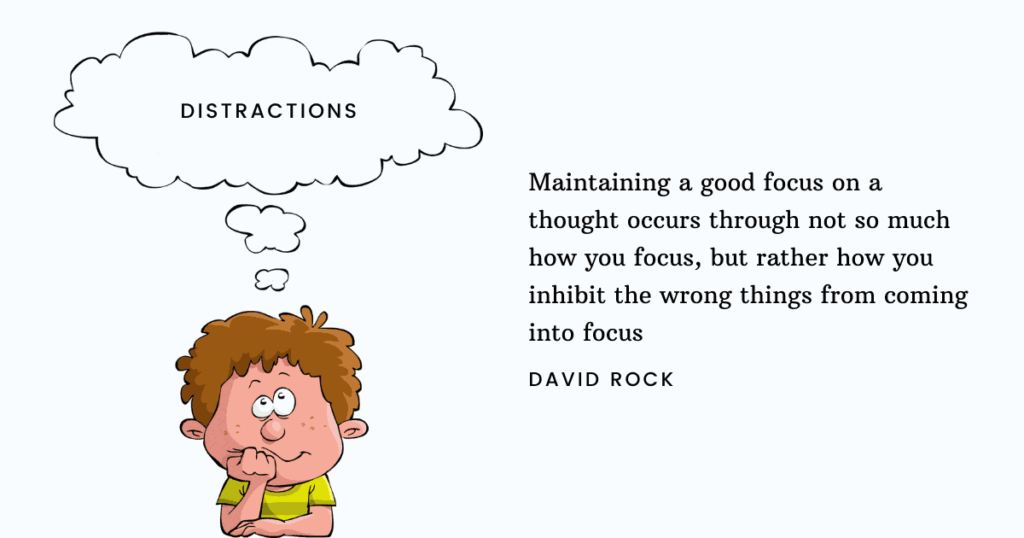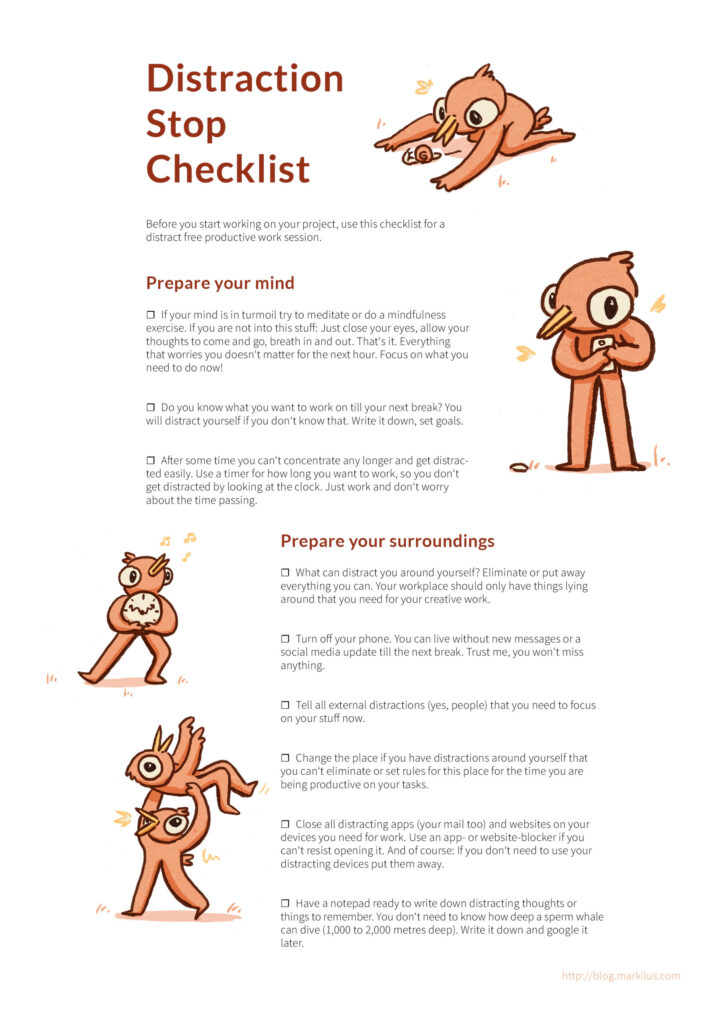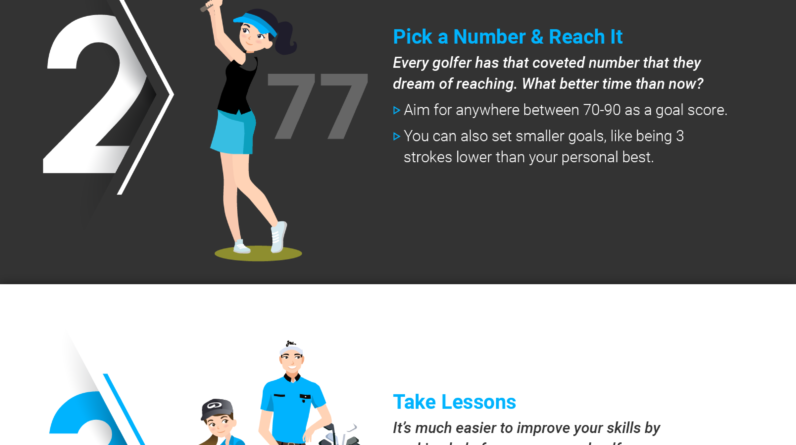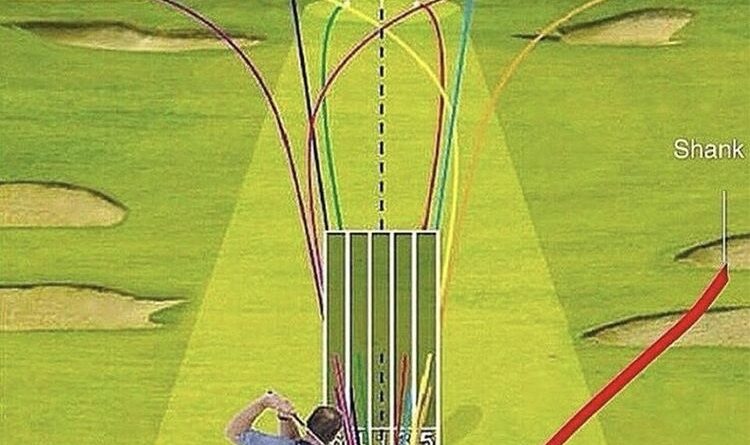Imagine you’re out on the golf course, enjoying a quiet day of hitting balls and perfecting your swing. Suddenly, a group of kids starts playing nearby, their laughter and shouts echoing through the air. Or maybe it’s the chirping of birds, the honking of cars on a nearby road, or even your own thoughts that threaten to derail your focus. Distractions are unavoidable, but how do you handle them? In this article, we’ll explore some practical tips and techniques to help you stay in the zone and maintain your golfing flow, no matter what comes your way.

Understand the Nature of Distractions
Distractions can be a common occurrence during a round of golf, and understanding their nature is the first step in effectively managing them. There are different types of distractions that can come into play, both external and internal. External distractions may include noise from other groups, visual distractions on the course, or even interruptions from other players. Internal distractions, on the other hand, are thoughts or feelings that can divert your attention away from the task at hand. These may include negative self-talk, anxiety, or simply daydreaming.
Effects of Distractions on Performance
Distractions can have a significant impact on your performance on the golf course. When you’re distracted, it becomes challenging to maintain focus and execute your shots with precision. Your attention may shift away from the present moment, leading to inconsistent swings and poor decision-making. Additionally, distractions can increase stress levels, making it harder to stay calm and composed throughout the round. It’s essential to develop strategies to minimize distractions and optimize your performance.
Preparation and Mental Focus
Preparation plays a crucial role in maintaining mental focus on the golf course. Visualizing success can help you build confidence and create a mental image of the shots you want to execute. Take some time before each round to visualize yourself hitting great shots and achieving your goals. This technique not only enhances your focus but also improves your overall performance.
Establishing a pre-shot routine is another effective way to maintain mental focus. By following a consistent routine before hitting each shot, you create a sense of familiarity and control. This routine can involve taking a few deep breaths, visualizing the shot, and aligning yourself with the target. It helps you clear your mind of distractions and promotes a more focused approach to each shot.
Developing mental resilience is a skill that can significantly benefit your golf game. It involves the ability to bounce back from setbacks and stay focused in challenging situations. To enhance your mental resilience, practice positive thinking and self-belief. Remind yourself of your past successes and maintain a confident mindset throughout your round. Mental resilience allows you to stay present and focused, even when distractions arise.
Practicing concentration is another key aspect of maintaining mental focus on the golf course. Engage in regular concentration exercises, such as focusing on a specific object or visualizing a target. This helps train your mind to stay in the present moment and ignore distractions. With consistent practice, you’ll find it easier to block out external noise and remain fully engaged in each shot.
Physical Techniques
Physical techniques can complement your mental focus strategies and further improve your ability to handle distractions on the course.
Controlled breathing is a simple yet powerful technique that can help calm your mind and settle your nerves. Before each shot, take a deep breath in through your nose, hold it for a moment, and exhale slowly through your mouth. This controlled breathing pattern activates a relaxation response in your body, reducing tension and allowing you to focus more effectively.
Progressive muscle relaxation is another physical technique that can promote mental focus. This involves tensing and then releasing different muscle groups throughout your body. By systematically relaxing your muscles, you can release any built-up tension and enhance your overall sense of calmness and focus.
Engaging in physical warm-ups before your round can also contribute to improved focus. Take a few minutes to perform some dynamic stretches or light exercises to get your body warmed up and ready to play. This physical preparation not only helps prevent injuries but also primes your mind for the upcoming round.
Sensory anchoring techniques can help you refocus your attention when distractions arise. Choose a specific sensory cue, such as a sight, sound, or physical sensation, that you can use as an anchor to bring your attention back to the present moment. For example, you might focus on the sound of your club hitting the ball or the sensation of your feet against the ground. By consciously redirecting your attention to this anchor, you can regain your focus and minimize the impact of distractions.

Managing External Distractions
Creating a distraction-free environment is essential for maintaining focus on the golf course. Before your round, take a few moments to assess your surroundings and remove any potential distractions. Make sure your playing area is free from unnecessary clutter or objects that may draw your attention away from the game.
Utilizing earplugs or playing music through headphones can also help minimize external distractions. By blocking out unwanted noise, you can create a more serene and focused atmosphere. Experiment with different types of music to find what works best for you. Some players prefer calm and soothing tunes, while others find motivation in more energetic beats. Find what helps you maintain your concentration and incorporate it into your routine.
Effective communication with playing partners can also play a role in managing distractions. Talk to your fellow players before the round and establish guidelines for maintaining focus and minimizing interruptions. Encourage open communication and mutual respect for each other’s concentration. By setting clear expectations, you can create a supportive and distraction-free playing environment.
Implementing time management strategies is crucial for minimizing distractions during a round of golf. Keep track of your pace of play and be mindful of others’ time. Plan your shots in advance, so you’re ready to go when it’s your turn. By staying organized and efficient, you can reduce the opportunities for distractions to arise and disrupt your concentration.
Dealing with Internal Distractions
Internal distractions, such as negative thoughts or self-doubt, can be just as challenging to manage as external distractions. Recognizing these negative thoughts is the first step in overcoming them. Pay attention to your internal dialogue and identify any patterns of negative self-talk or self-defeating beliefs.
Challenge and reframe negative self-talk by replacing negative thoughts with positive and encouraging ones. For example, if you find yourself thinking, “I always mess up under pressure,” challenge that belief by reminding yourself of times when you have succeeded in similar situations. Reframe the thought to something like, “I’ve handled pressure before, and I can do it again.”
Practice mindfulness meditation to cultivate awareness of your thoughts and emotions. Mindfulness involves observing your thoughts without judgment and bringing your focus back to the present moment. Regular meditation practice can improve your ability to let go of distractions and maintain a clearer and more focused mind.
Cognitive behavioral techniques can also be useful in dealing with internal distractions. These techniques involve identifying and challenging irrational or unhelpful beliefs. By questioning the validity of your thoughts and providing evidence for more positive and realistic perspectives, you can reframe your mindset and reduce the impact of distractions on your concentration.
Utilizing Technology
Technology can be a valuable tool in enhancing your ability to maintain focus on the golf course. Various apps and wearables are designed to support mindfulness and concentration.
Mindfulness apps, such as Headspace or Calm, provide guided meditation sessions that can help you develop your mindfulness practice. These apps offer a library of exercises specifically designed to improve focus, reduce stress, and enhance mental clarity. By incorporating these apps into your routine, you can cultivate skills that directly benefit your ability to handle distractions on the course.
Focus-enhancing wearables, such as meditation headbands or smartwatches, monitor your brain activity and provide real-time feedback on your focus levels. These devices can help you become more aware of your mental state and prompt you to refocus when distractions arise. By utilizing technology, you can develop a deeper understanding of your mental patterns and actively work on improving your concentration.
Distraction-blocking apps can prevent unnecessary interruptions and keep your attention solely on the game. These apps can block incoming calls, notifications, and other distractions that may arise from your smartphone. By eliminating potential distractions, you can maintain a clear and focused mind throughout your round.
Virtual reality (VR) training is an innovative approach to improving focus on the golf course. VR systems can simulate various golfing scenarios and create an immersive environment that replicates real-life distractions. By practicing in a virtual setting, you can develop your ability to maintain concentration despite external factors. VR training allows you to train your mind to stay focused in challenging situations and transfer those skills to the golf course.
Developing Resilience
Developing mental toughness and resilience is essential for handling distractions effectively. Building mental toughness involves embracing challenges, staying determined in the face of adversity, and bouncing back from failures.
Learning from failures is a critical part of developing resilience. Instead of dwelling on mistakes or setbacks, view them as opportunities for growth. Analyze what went wrong, identify areas for improvement, and make a plan for moving forward. By approaching failures with a growth mindset, you can turn them into valuable learning experiences and build mental toughness.
Maintaining a positive attitude is crucial for developing resilience. Focus on the aspects of your game that you excel at and celebrate your successes, no matter how small. Avoid dwelling on negative outcomes or getting caught up in self-doubt. Cultivating a positive mindset allows you to approach challenges with optimism and confidence.
Seeking support and guidance from coaches, mentors, or sports psychologists can also contribute to your resilience. These professionals can provide valuable insights, techniques, and encouragement to help you overcome distractions and perform at your best. Surrounding yourself with a supportive network of individuals who have your best interests at heart can help you navigate challenging situations and build mental resilience.

Maintaining Concentration
Maintaining concentration throughout a round of golf can be demanding, but there are strategies you can employ to stay focused.
Setting realistic goals is essential for staying on track and maintaining concentration. Break down your round into smaller, manageable segments and set specific objectives for each section. By having clear goals, you can retain focus on the task at hand and work towards achieving success one step at a time.
Maintaining an external focus is another effective technique for concentration. Rather than getting caught up in your internal thoughts and emotions, direct your attention to the external cues around you. Stay present by observing the details of the course, such as the terrain, wind direction, or the sound of your club striking the ball. By anchoring your focus outward, you can minimize the impact of internal distractions and perform with more accuracy and consistency.
Breaking down the round into smaller intervals can help you maintain concentration throughout the entire game. Instead of focusing solely on the final outcome, divide the round into individual shots or holes. By staying present and focusing on the current shot or hole, you reduce the likelihood of becoming overwhelmed or distracted by future events. Take it shot by shot and hole by hole, keeping your attention grounded in the present moment.
Re-engaging after distractions is an essential skill to master. When you do get distracted, whether by external factors or internal thoughts, consciously bring your attention back to the game. Refocus on your pre-shot routine or anchor your attention on your sensory cues. By developing this ability to re-engage quickly, you can minimize the impact of distractions and regain your concentration more efficiently.
Improving Focus on the Practice Range
Improving your ability to concentrate on the practice range can translate into better performance on the course. There are several techniques you can incorporate into your practice routine to enhance your focus.
Practicing with distractions can help simulate the conditions you may encounter during a round of golf. Introduce noise, visual distractions, or time pressure to your practice sessions. By deliberately exposing yourself to distractions, you can become better equipped to handle them when they arise on the course. This technique trains your mind to block out unnecessary stimuli and maintain focus on your shots.
Implement visualization techniques during your practice sessions. Before each shot, take a moment to visualize the desired outcome. Imagine the ball flying towards the target with precision and accuracy. By incorporating visualization into your practice routine, you enhance your ability to create a mental image and maintain focus during your actual rounds.
Creating specific training drills that challenge your concentration can also improve your focus. For example, you can set up a putting drill that requires you to hole out from various distances consecutively. This practice not only hones your putting skills but also tests your ability to sustain focus over an extended period. By incorporating these targeted drills, you can strengthen your concentration skills and carry them onto the golf course.
Controlling external stimuli during your practice sessions is another effective way to enhance focus. Minimize distractions in your practice area, such as unnecessary conversations or noise. Find a quiet and secluded spot where you can fully immerse yourself in your practice routine. By creating a controlled environment, you can optimize your ability to concentrate and make the most out of your practice sessions.

Tips for Tournament Play
Tournament play can add an extra layer of pressure and distractions, but there are strategies you can employ to maintain focus and perform at your best.
Establishing a routine before teeing off can help you enter a focused and centered state of mind. Develop a pre-tournament routine that includes physical warm-ups, mental preparation, and a review of your game plan. By following a consistent routine, you create a sense of familiarity and calmness, even in the face of competition.
Managing competition pressure is crucial for maintaining concentration during tournaments. Acknowledge that feeling nervous or anxious is a normal part of the competitive experience. Rather than trying to eliminate these feelings, learn to harness them and channel them into positive energy. Embrace the challenge and view competition as an opportunity to showcase your abilities.
Focus on your game and avoid getting distracted by what your competitors are doing. It’s easy to become consumed by the performance of others, but ultimately, you have no control over their outcomes. Instead, direct your attention exclusively to your own game plan and execute each shot to the best of your ability. By staying focused on yourself, you can maintain a clear mind and maximize your performance.
Use positive self-talk to reinforce your confidence and focus during tournaments. Instead of allowing negative thoughts to creep in, consciously replace them with positive affirmations. Remind yourself of your strengths, past successes, and the hard work you’ve put into your game. By fostering a positive and encouraging inner dialogue, you create a mental environment that supports your concentration and performance.
In conclusion, distractions are a common challenge in golf, but with the right strategies and techniques, you can effectively manage them and maintain focus throughout your rounds. By understanding the nature of distractions and their impact on performance, preparing both mentally and physically, managing external and internal distractions, utilizing technology, developing resilience and mental toughness, and applying concentration techniques on the practice range and during tournaments, you can enhance your ability to handle distractions and optimize your performance on the golf course.







